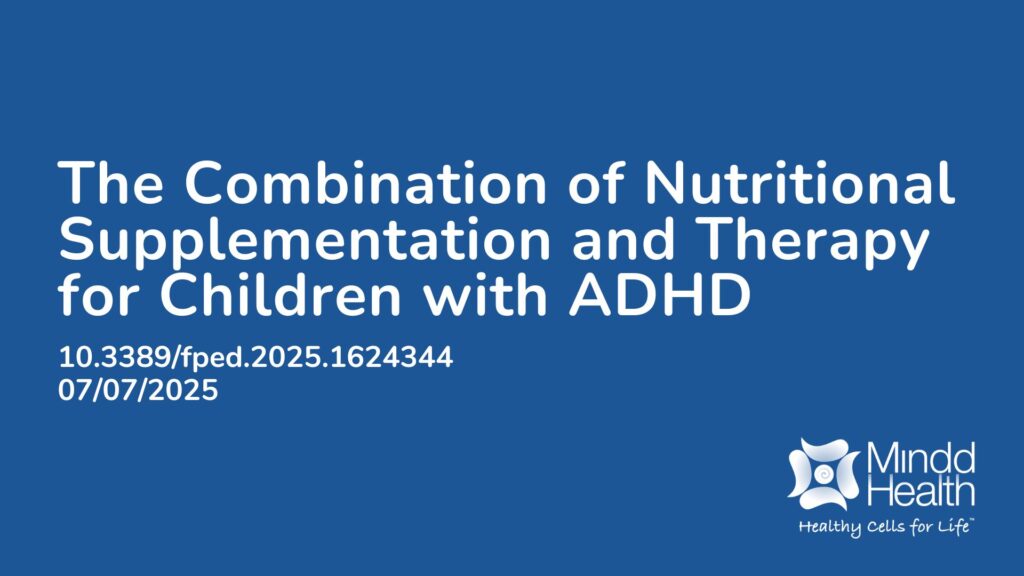Summary:
ADHD is a common neurodevelopmental condition and its prevalence is rising. Although stimulant medications remain the first-line treatment, concerns about side effects and their limited impact on broader cognitive challenges have encouraged interest in non-drug approaches. Nutritional deficiencies, particularly in zinc, magnesium, iron, and B vitamins, are thought to contribute to ADHD symptoms, prompting exploration of multi-micronutrient supplementation as an alternative therapy. Cognitive Behavioural Therapy (CBT) has also shown benefits in improving emotional regulation and behavioural control. This study examined the impact of multi-micronutrient supplementation alone compared to its combination with CBT in children diagnosed with ADHD. A total of 220 children aged 6-14 years were retrospectively analysed, with 112 receiving only the nutritional formula and 108 receiving both the formula and CBT for three months. Outcomes were assessed using parent- and teacher-rated symptom scales. Both groups showed improvement, but those receiving the combined treatment demonstrated greater reductions in attention problems, hyperactivity, oppositional behaviours, and learning difficulties. Functional impairments in daily activities also improved more in the combined group. No adverse effects were reported during the intervention. These findings suggest that multi-micronutrient supplementation may help address biochemical factors contributing to ADHD, while CBT supports behavioural regulation. Together, they appear to provide a more comprehensive approach to symptom management than nutritional intervention alone.
Abstract:
Background: Attention-Deficit/Hyperactivity Disorder (ADHD) characterized by symptoms of inattention, hyperactivity, and impulsivity, with substantial impacts on a child’s academic performance, social interactions, and overall quality of life. This study investigates the impact of combining a multi-micronutrient nutritional formula (MNF) with cognitive behavioral therapy (CBT) in managing ADHD symptoms in children. Methods: In a retrospective analysis of 220 children aged 6–14 years diagnosed with ADHD, patients were divided into two groups: the MNF group (n = 112) receiving only the nutritional formula, and the MNF-CBT group (n = 108) receiving both the nutritional formula and CBT. The interventions were conducted over three months. Outcomes were measured using the Conners Parent Symptom Questionnaire (PSQ), SNAP-IV Teacher Form, and Dundee Difficult Times of the Day Scale (D-DTODS). Results: Both groups were comparable at baseline in terms of demographics and ADHD symptom severity. Post-treatment analyses revealed greater reductions in attention deficit scores, hyperactivity/impulsivity scores, and oppositional symptoms scores in the MNF-CBT group compared to the MNF group. Conduct scores were lower in the MNF-CBT group than in the MNF group, and learning scores also showed a similar pattern of reduction. Functional impairments across various daily activities, as measured by the D-DTODS, were also reduced in the MNF-CBT group. No adverse events or safety concerns were observed during the intervention period. Conclusion: The combination of multi-micronutrient supplementation with CBT shows potential in alleviating both neurochemical deficiencies and behavioral dysregulation in children with ADHD. These findings suggest that this integrated approach may be beneficial for managing ADHD symptoms.
Article Publication Date: 07/07/2025
DOI: 10.3389/fped.2025.1624344



